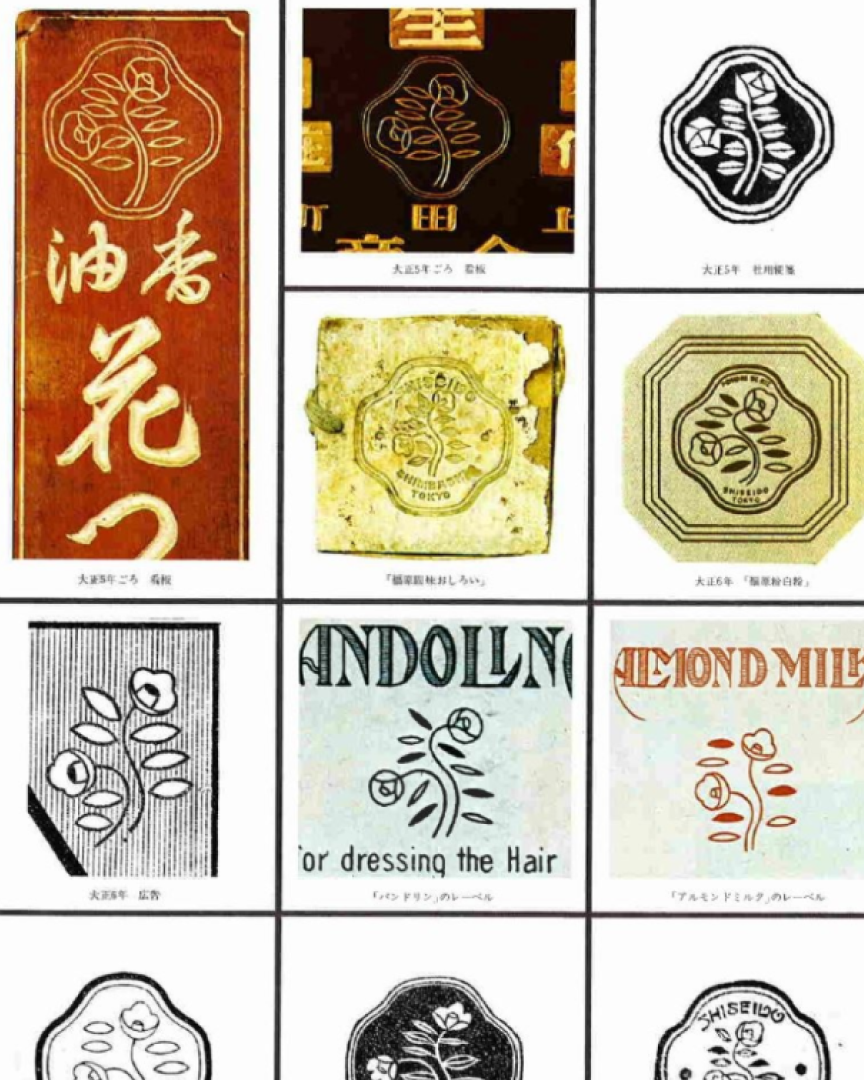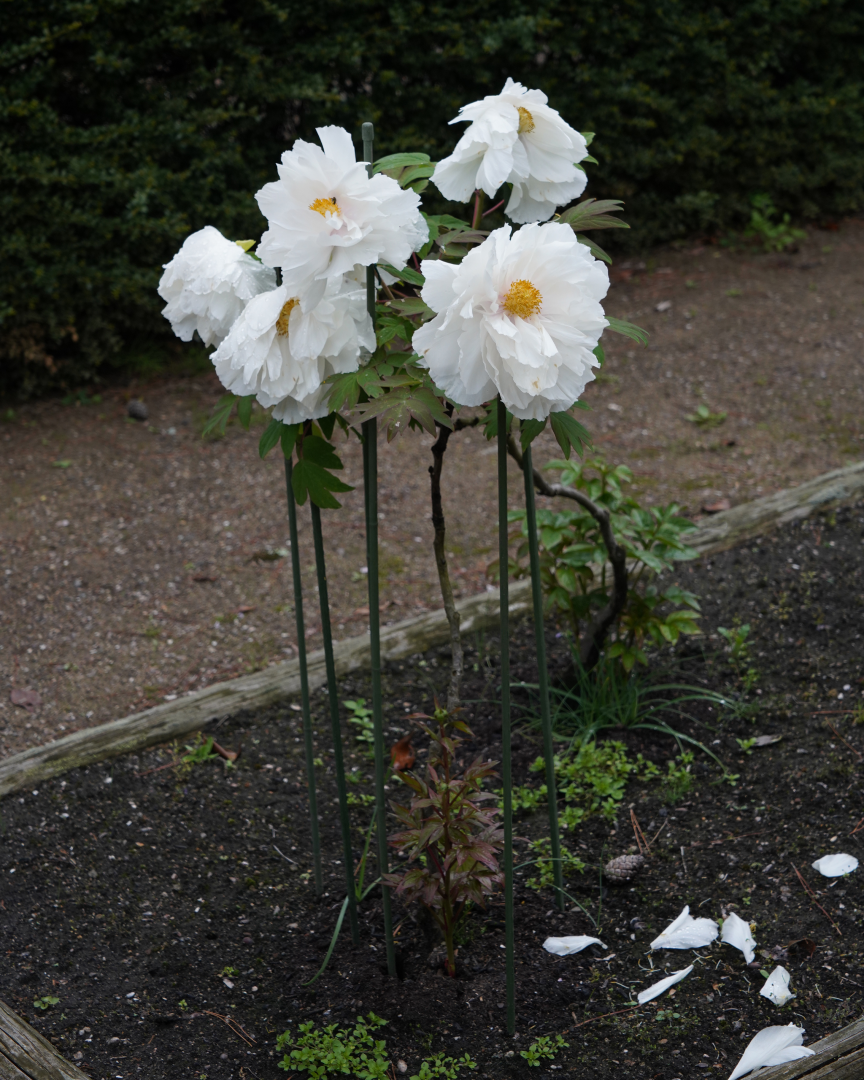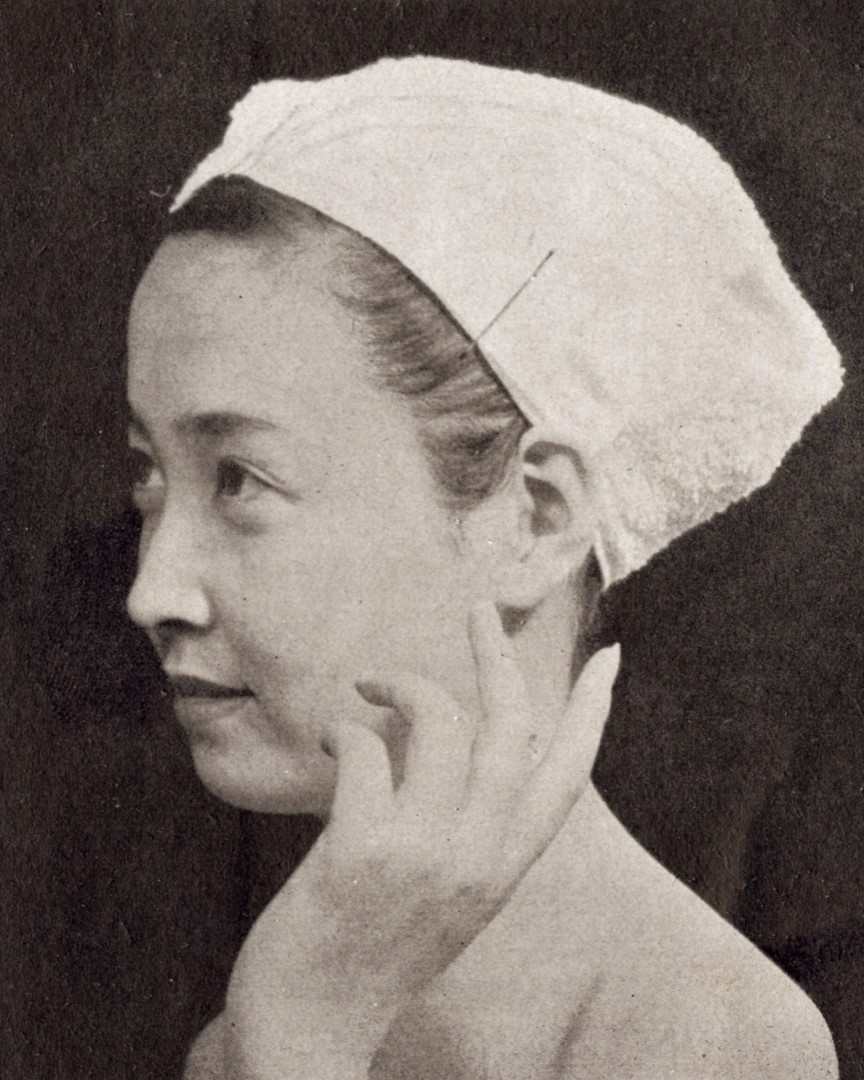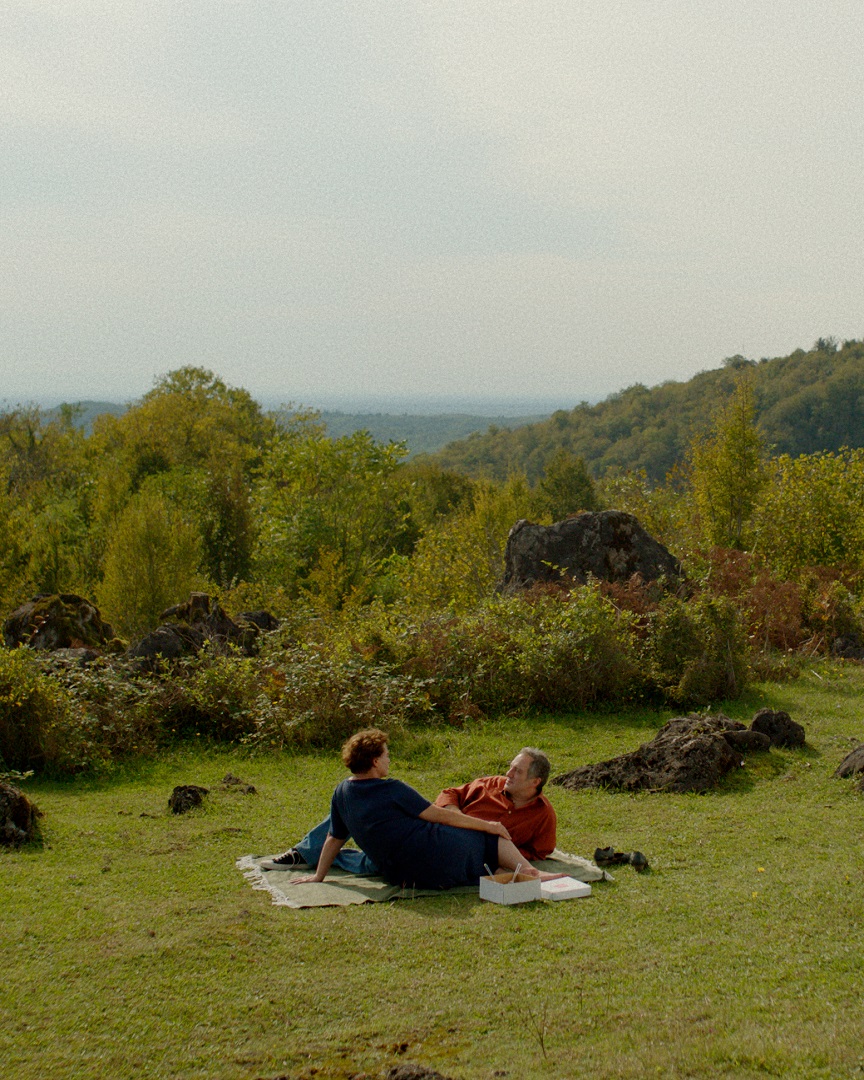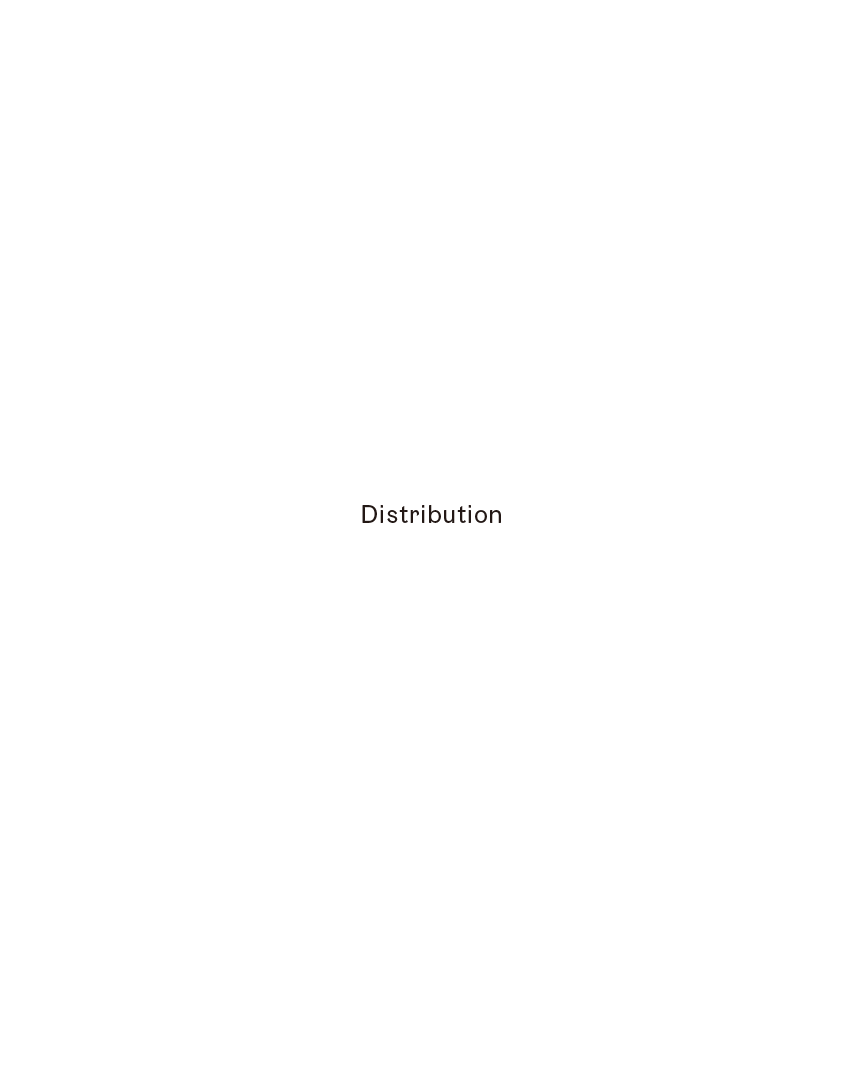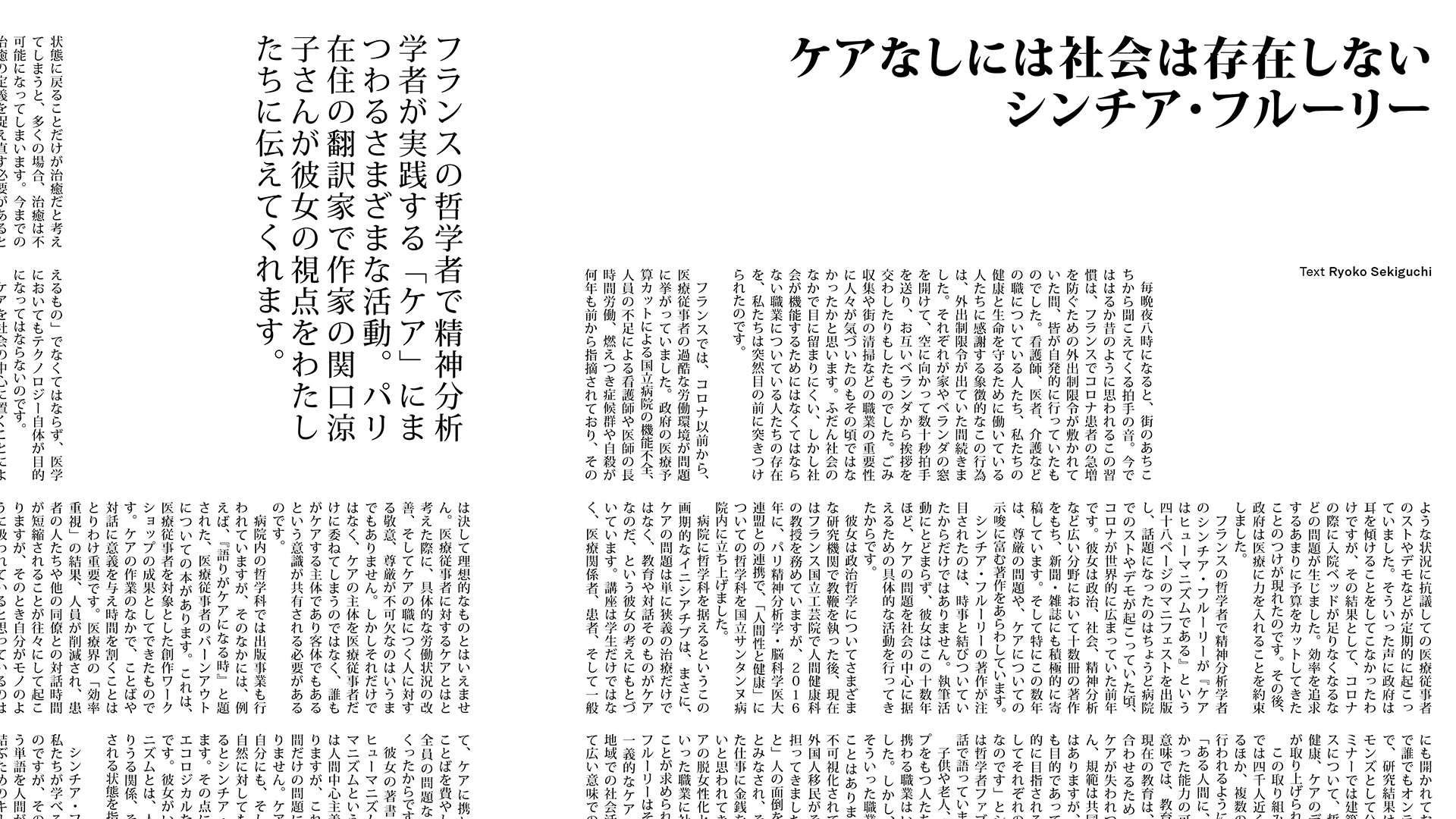
2024年11月刊行の『花椿』No.832に掲載の本企画では、フランスの哲学者で精神分析学者のシンチア・フルーリーが実践する「ケア」にまつわるさまざまな活動について、パリ在住の翻訳家で作家の関口涼子さんが彼女の視点をわたしたちに伝えてくれます。
________________________
毎晩夜八時になると、街のあちこちから聞こえてくる拍手の音。今でははるか昔のように思われるこの習慣は、フランスでコロナ患者の急増を防ぐための外出制限令が敷かれていた間、皆が自発的に行っていたものでした。看護師、医者、介護などの職についている人たち、私たちの健康と生命を守るために働いている人たちに感謝する象徴的なこの行為は、外出制限令が出ていた間続きました。それぞれが家やベランダの窓を開けて、空に向かって数十秒拍手を送り、お互いベランダから挨拶を交わしたりもしたものでした。ごみ収集や街の清掃などの職業の重要性に人々が気づいたのもその頃ではなかったかと思います。ふだん社会のなかで目に留まりにくい、しかし社会が機能するためにはなくてはならない職業についている人たちの存在を、私たちは突然目の前に突きつけられたのです。
フランスでは、コロナ以前から、医療従事者の過酷な労働環境が問題に挙がっていました。政府の医療予算カットによる国立病院の機能不全、人員の不足による看護師や医師の長時間労働、燃えつき症候群や自殺が何年も前から指摘されており、そのような状況に抗議しての医療従事者のストやデモなどが定期的に起こっていました。そういった声に政府は耳を傾けることをしてこなかったわけですが、その結果として、コロナの際に入院ベッドが足りなくなるなどの問題が生じました。効率を追求するあまりに予算をカットしてきたことのつけが現れたのです。その後、政府は医療に力を入れることを約束しました。
フランスの哲学者で精神分析学者のシンチア・フルーリーが『ケアはヒューマニズムである』という四十八ページのマニフェストを出版し、話題になったのはちょうど病院でのストやデモが起こっていた頃、コロナが世界的に広まっていた前年です。彼女は政治、社会、精神分析など広い分野において十数冊の著作をもち、新聞・雑誌にも積極的に寄稿しています。そして特にこの数年は、尊厳の問題や、ケアについての示唆に富む著作をあらわしています。
シンチア・フルーリーの著作が注目されたのは、時事と結びついていたからだけではありません。執筆活動にとどまらず、彼女はこの十数年ほど、ケアの問題を社会の中心に据えるための具体的な活動を行ってきたからです。
彼女は政治哲学についてさまざまな研究機関で教鞭を執った後、現在はフランス国立工芸院で人間健康科の教授を務めていますが、2016年に、パリ精神分析学・脳科学医大連盟との連携で、「人間性と健康」についての哲学科を国立サンタンヌ病院内に立ち上げました。
病院に哲学科を据えるというこの画期的なイニシアチブは、まさに、ケアの問題は単に狭義の治療だけではなく、教育や対話そのものがケアなのだ、という彼女の考えにもとづいています。講座は学生だけではなく、医療関係者、患者、そして一般にも開かれており、セミナーは無料で誰でもオンラインでの聴講が可能で、研究結果はクリエイティブ・コモンズとして公開されています。セミナーでは建築とケア、レジリエンスについて、哲学から見る精神的な健康、ケアのデザインなどのテーマが取り上げられています。
この取り組みは話題を呼び、現在では四千人近くの登録者を集めているほか、複数の都市で同様の試みが行われるようになりました。
「ある人間に、その人にそれまでなかった能力の可能性を与えるという意味では、教育もまたケアなのです。現在の教育は、人を社会規範の枠に合わせるためのものとなっており、ケアが失われつつあります。もちろん、規範は共同体において不可欠ではありますが、それは手段であっても目的であってはなりません。最終的に目指されるべきなのは個人、そしてそれぞれの固有性を生かすことなのです」とシンチア・フルーリーは哲学者ファブリス・ミダルとの対話で語っています。
子供や老人、病人やハンディキャップをもつ人たちの世話など、ケアに携わる職業はいつの時代も存在しました。しかし、欧米社会において、そういった職業の価値が重視されることはありませんでした。ケアは不可視化されてきたのです。女性や外国人移民がそういった役割を主に担ってきましたが、彼らは「もともと」人の面倒をみるのに向いている、とみなされ、それゆえに、そういった仕事に金銭を介在させる必要はないと思われてきたのです。現在、ケアの脱女性化と可視化、そしてそういった職業に社会的な価値を与えることが求められています。シンチア・フルーリーはその思考をさらに進め、一義的なケアの職業だけではなく、地域での社会活動に関わる職、そして広い意味での教育もケアであると定義します。相互依存(相互にケアをすること)は欠点ではなく社会の力の源であり、社会の創造的な改革を可能にするのです。
また、彼女は「バルネラビリティ(脆弱性、弱さ)」も定義され直すべきだと提案します。ケアということばは、社会において弱い存在に対して用いられるイメージがあります。しかし、わたしたちは、誰もが例外なく人生のどこかで身体的・精神的に弱い状態に直面します。その点において、バルネラビリティは、事実として常に社会に存在しているものです。社会に弱者とそうでない者がいると考え、前者の存在に目をつぶって見ないことにしても社会のバルネラビリティが消え去るわけではなく、不可視化することでかえってその問題は大きくなってしまいます。
それは、人は誰しも苦しむものだなどという感傷主義では決してありません。社会にバルネラビリティが存在することは動かしがたい事実であり、バルネラビリティという事実に対する知識をもつことで、弱さが、新しい事柄を生み出す契機になるとシンチア・フルーリーはいいます。問題があることを受け入れ、それに対応した新たな存在の仕方を生み出すようになるというのです。
例えば、医学の進歩により、皮肉にも、致命的な病だったものが慢性病になることで起きているバルネラビリティがあります。ガンの一部は現在、慢性病といっていい状態を引き起こすことがありますが、それに伴う入院、治療、手術などにより肉体的には死んでいなくても、仕事を失ったり家庭崩壊を引き起こしたりと、慢性病が社会的な死をもたらしてしまう場合があります。その状況に対処し、新たな生のあり方を考えることもまた、ケアの問題です。
また、何をもって治癒というのかも問題になってきます。病気以前の状態に戻ることだけが治癒だと考えてしまうと、多くの場合、治癒は不可能になってしまいます。今までの治癒の定義を捉え直す必要があるとシンチア・フルーリーは主張します。もちろん、ここでも、彼女は、諦めが肝心だなどという感傷的な主張をしているのではありません。身体的に完全な回復が不可能である、バルネラビリティと共存しなければならない状態において、希望を保ち、諦める事柄が少なくてすむようにできれば、それも治癒と呼べるのではないかと提案しているのです。
治癒とは単に「病気」を消すことを意味しているのではなく、「病気を抱えたひとりの人間」を、その精神、身体とそれを取り巻く環境全体として捉えてケアすることです。もちろんそれは、医学を放棄することではありません。「人間は本質的に科学を愛するものであり、技術は人間を解放するという目的をもっています(中略)、しかし技術は人間に人間性を与えるもの」でなくてはならず、医学においてもテクノロジー自体が目的になってはならないのです。
ケアを社会の中心に置くことにより、病院はシンチア・フルーリーいうところの「都市の柱」となっていきます。それは、単に弱き者が押し込まれ、社会的に健康とみなされるまで置いておかれる、避けるべき場所ではなく、よりよき生について考え実践する場になります。彼女自身が病院の敷地内に実際に哲学科を立ち上げたように、知の共有の場所になるのです。そこでは患者も、単に自分の病気について「知る権利」があるだけでなく、医療従事者とは別の立場から生の問題を考える人間として存在し、連帯の場をつくる希望が生まれます。
また、こういった学びの場は、医療従事者にもケアの機会を与えます。ケアをほどこす人たちにもケアは必要だからです。はじめにも書いたように、医療従事者をめぐる職場環境は決して理想的なものとはいえません。医療従事者に対するケアとはと考えた際に、具体的な労働状況の改善、そしてケアの職につく人に対する敬意、尊厳が不可欠なのはいうまでもありません。しかしそれだけではなく、ケアの主体を医療従事者だけに委ねてしまうのではなく、誰もがケアする主体であり客体でもあるという意識が共有される必要があるのです。
病院内の哲学科では出版事業も行われていますが、そのなかには、例えば、『語りがケアになる時』と題された、医療従事者のバーンアウトについての本があります。これは、医療従事者を対象とした創作ワークショップの成果としてできたものです。ケアの作業のなかで、ことばや対話に意義を与え時間を割くことはとりわけ重要です。医療界の「効率重視」の結果、人員が削減され、患者の人たちや他の同僚との対話時間が短縮されることが往々にして起こりますが、そのとき自分がモノのように扱われていると思っているのは患者だけではなく、医療従事者もそのことによって自分が機械になったように感じているからです。自分たちの労働環境の悪化を訴える声が政府に届かない、医者同士の対話の時間がないと医者や看護師自身が感じているとき、どうして患者の声を聞くことができるでしょうか。
哲学は、生や世界のあり方を言語により思考する場ですが、その意味では、フランスにおいて医療従事者たちが自分たちの労働環境を外の人たちに理解してもらうためのストやデモを行っている2019年に『ケアはヒューマニズムである』が出版されたのは、ケアを中心とした社会を目指すシンチア・フルーリーが哲学者として行った政治的活動であったともいえます。この本をめぐっての対話や議論が行われることによって、ケアに携わる人々に声を与え、ことばを費やして「ケア」は私たち全員の問題なのだという意識をつくったからです。
彼女の著書のタイトル『ケアはヒューマニズムである』の、ヒューマニズムということばは、日本語では人間中心主義と訳されることもありますが、これは決して、ケアを人間だけの問題にとどめるものではありません。ケアは他人だけではなく自分にも、そして人間だけではなく自然に対しても実践されるべきであるとシンチア・フルーリーは主張します。その点においてケアは優れてエコロジカルなテーマになりうるのです。彼女がいうところのヒューマニズムとは、人が人であるゆえに取りうる関係、そして、人間性が尊重される状態を指しているのです。
シンチア・フルーリーの思考から私たちが学べることがらは大変多いのですが、そのなかでも、ケアという単語を人間が自由で対等な関係を結ぶためのキーワードとして捉えていること、そしてケアが実際に社会を改革するための柱であると定義していることは、日本の私たちにとっても重要ではないかと思います。
ここでは、彼女が病院の哲学科で行っている活動を中心に書いてきましたが、ケアは医療業界だけの問題ではなく、さまざまな分野において人がモノとして、取り替え可能な存在として扱われることにあらがう行為そのものです。その意味で、ケアは自己の確立に必要不可欠なのです。
そして、シンチア・フルーリーが、「ケアなしには社会は存在しない」というとき、その裏には、ケアを中心とした社会を構築するという現実的で具体的な目標があります。この点はいくら強調してもしすぎではないでしょう。というのも、確かにケアのテーマが取り上げられるのは好ましいことではありますが、社会の抜本的改革が行われないうちに、ケアということばがいわば流行語のように薄められたような状態でさまざまな分野で使用されてしまうと、ケアが個人の、日本語的な「気遣い」の問題に回収されてしまう危惧もあるからです。ケアは個人の資質に帰着するのではなく社会全体で共有する倫理であるべきなのですから。
そう考えてみてはじめて、ケアはこの世界を私たちが人間性をもって生きうる場とする行為であり、ケアの擁護は政治的かつ倫理的態度であり終わりを知らぬ戦いである、なぜならそれは生の絶えざる動きを信じることだからだ、という彼女の主張の重さが生きてくるのではないでしょうか。
関口 涼子
パリを拠点に、翻訳家・作家として活動。Ḿ・ウェルベックの翻訳や日本文学や漫画の翻訳を手掛ける。2022年、『961 heures à Beyrouth (et 321 plats qui les accompagnent)』で第42回フランス-レバノン文学賞審査委員特別賞、2022年度フランス文学者協会ノンフィクション賞を受賞。同書を自ら日本語訳した『ベイルート 961時間(とそれに伴う 321皿の料理)』(講談社)を刊行している。
*本記事は『花椿』No.832に掲載しております。
詳細はこちら
Without Care,
Society Would Not Exist
Cynthia Fleury
(From "Hanatsubaki" No.832 "care".)
2025.3.13
text / Ryoko Sekiguchi
Paris-based translator and writer Ryoko Sekiguchi offers an introduction to French philosopher and psychoanalyst Cynthia Fleury’s message for society about care.
Every night at eight o’clock, bursts of applause rang out here and there across town. It feels like something from the distant past now, but this observance arose spontaneously during the lockdown period, when people’s movements were restricted to slow the growth of COVID-19 cases in France. It was a symbolic act expressing gratitude to nurses, doctors, carers, and others whose work it was to protect our health and lives, and it was practiced for as long as the lockdown remained in place. At the appointed hour, everyone opened their front door or balcony window, sent half a minute of applause skyward, and then exchanged neighbourly pleasantries, balcony to balcony. This period, I suspect, was when the populace became conscious of the vital importance of work like garbage collection and street cleaning. Those whose professions are often forgotten by society despite being essential to society’s function were thrust into the spotlight all at once.
Even before COVID-19, the harsh working conditions faced by medical personnel in France were hotly debated. National hospitals rendered dysfunctional by government budget cuts, nurses and doctors working overtime due to inadequate staffing, and high rates of burnout and even suicide had been known issues for years, and medical personnel held regular strikes and demonstrations in protest. The government paid no heed to these calls for reform, and as a result the rise of COVID-19 immediately caused hospital bed shortages and other problems. Hospital budgets had been cut to the bone in an overzealous quest for efficiency, and the bill had finally come due. The government subsequently promised to make medicine a priority.
It was amid this earlier wave of hospital strikes and demonstrations in the year before the COVID-19 pandemic began that French philosopher and psychoanalyst Cynthia Flurry aroused debate with a 48-page manifesto entitled Le Soin est un Humanism (Care is a humanism). Fleury has published dozens of books in fields ranging from governance and society to psychoanalysis, and is a frequent contributor to newspapers and magazines. Over the past few years in particular, her work has offered much insight into the problems of dignity and care in particular.
But timeliness was not the only reason Fleury’s works attracted attention that year. She has spent decades not only writing but also taking concrete action to centre the problem of care in society.
After teaching political philosophy at many research institutions, Fleury is currently Professor and Chair of Humanities and Health at the Conservatoire National des Arts et Métiers. In 2016, in collaboration with the GHU-Paris, Psychiatry & Neurosciences, she established a research chair in philosophy at the Centre Hospitalier Sainte-Anne, with a focus on humanities and health.
Establishing the “Research Chair in Philosophy at the Hospital,” as the initiative is known, was a groundbreaking move deriving directly from Fleury’s conceptualization of care as something far broader than medical treatment alone; education and dialogue, she argues, are forms of care as well. The chair’s courses are open not only to students, but also to medical professionals, patients, and the general public. Seminars are freely available online, and a range of research findings are published under Creative Commons licensing. These seminars are about architecture, care, and resilience, raising themes such as philosophical perspectives on mental health and the design of care.
The Research Chair in Philosophy at the Hospital aroused animated discussion, and currently has nearly 4,000 registered members, with similar experiments underway in multiple other cities.
“In the sense that it gives a person the potential for capabilities they did not have before, education, too, is care,” said Fleury in a dialogue with philosopher Alexandra Midal. “Today, education has become a tool for fitting people into the framework of social regulations, and is losing this element of care. Of course, regulations are essential for a community, but they are a means, not an end. Ultimately, we should be aiming to bring out the best of each individual and their inherent properties.”
Caring professions have always existed to meet the needs of groups such as children, the elderly, people with illnesses, and people with disabilities. However, Western society has rendered these professions invisible and failed to recognise their value. These roles have largely been played by women and immigrants, who have been viewed as “naturally” suited to caring for others, making it unnecessary to involve money in the matter. The task before us now is to de-feminise care, make it visible, and impart social value to the work it involves. Taking this idea even further, Fleury expanding the definition of “care” from a single class of professions to include work relating to regional social activities and education more broadly. Mutual dependence (caring for one another) is not a weakness but the source of a society’s strength, making creative innovation within that society possible.
Fleury also argues for a reconsideration of our definition of vulnerability. “Care” is often understood as something received by those who are relatively powerless in society, but we all find ourselves physically or psychologically weakened at some point in our lives. Vulnerability as such is an ever-present fact of society. It cannot be eliminated simply by diving society into those who are vulnerable and those who are not and wilfully ignoring the former. If anything, pushing the problem out of sight only magnifies it.
This is not a sentimental argument about suffering as an inevitability for humans. The existence of vulnerability in society is an incontrovertible fact, Fleury argues, but when we are equipped with knowledge about this fact, weakness becomes an opportunity to create new states of affairs. We become capable of accepting the existence of a problem and creating new modes of being in response.
For example, some instances of vulnerability are, ironically enough, the result of medical progress turning critical illnesses into chronic conditions. Some forms of cancer now result in conditions that could be termed chronic illnesses. Live-saving hospitalization, treatment, and surgery can leave patients unemployed and families destroyed, bringing about a kind of social death. Devising new ways of life to address this issue is another problem of care.
Even the definition of “treatment” is debatable. If we take it to refer only to a return to the status quo before the illness in question, then for many patients no “treatment” is possible. Accordingly, Fleury proposes a reconsideration of our existing definitions of treatment. Here, too, she does not argue sentimentally for giving up and accepting one’s fate. Suppose that someone is incapable of a full physical recovery and must, therefore, coexist with vulnerability: if that person’s hope is kept alive and the number of things they must give up kept to a minimum, Fleur asks, could we not call this “treatment”?
Treatment thus means not simply eliminating illness but caring for an individual with an illness by understanding their psychology and physiology along with the surrounding environment. This does not mean abandoning medicine, of course. “Humans have an essential love of science, and technology has the goal of freeing humans . . . however, for technology to be something that imparts humanity to humans” is essential. In medicine as elsewhere, technology cannot be an end in itself.
When care is made central to society, hospitals become what Fleury calls “pillars of the city.” They are not simply places to avoid, where the weak are warehoused until they are deemed socially healthy again, but spaces for thinking about how life could be better and taking action accordingly. Hospitals can be venues for sharing knowledge, as Fleury showed by establishing the Research Chair in Philosophy at the Hospital. Beyond patients’ right to know about their own conditions, they also exist as human beings considering the problems of life from a standpoint that differs from that of medical professionals. This means hope for the creation of a space of solidarity.
Venues for learning also give medical personnel the opportunity to receive care. After all, those who provide care also require care themselves. As noted earlier, medical personnel face working conditions that are far from ideal. When we think about what care for medical personnel might entail, it goes without saying that concrete improvement in working conditions are essential, as are respect and dignity for those in caring professions. Beyond this, however, we must overcome our tendency to view medical professionals solely as subjects in relation to care, replacing this with a shared understanding that, in relation to care, everyone is both subject and object.
The Research Chair in Philosophy at the Hospital also publishes books. One example is Quand le récit faits soin (When narrative becomes care), a book about burnout among medical professionals that began as a creative workshop for medical professionals. When performing the work of care, it is particularly important to give meaning to and make time for words and dialogue. Prioritization of efficiency in medicine often leads to staffing cuts and less time spent in dialogue with patients and colleagues. This not only makes patients feel as if they are being treated as objects but also makes medical personnel feel as if they have become machines. When doctors and nurses do not feel that their complaints about deteriorating working conditions are heard by the government, and have no time for collegial dialogue, how can they themselves hear what patients have to say?
Philosophy is a venue for considering life and the world through language. In that sense, choosing to publish Le Soin est un Humanism in 2019, when medical personnel in France were striking and demonstrating to gain understanding from outsiders about their working conditions, was a political act by Fleury as a philosopher who aims to make care central to society. The dialogue and discussion about this book gave voices to people involved with care, and many words were spent creating the understanding that care is everyone’s problem.
The word “humanism” is sometimes translated into Japanese as ningen chushin shugi, roughly meaning “human-centricity.” But care is by no means a problem for humans alone. Fleury maintains that we should care not only for others but also for ourselves, and not only for humans but also for nature. Viewed in these terms, care can be an excellent ecological theme. When Fleury speaks of humanism, she is referring to the relationships humans can form precisely because they are human and a state in which our humanity is respected.
There is much we can learn from Fleury’s philosophy, but two insights particularly important for those of us in Japan are her conceptualization of care as a keyword for the formation of free and equal relationships between humans, and her definition of care as a pillar that actually supports social innovation.
In this essay I have focused chiefly on Fleury’s activities at the Research Chair in Philosophy at the Hospital. However, care is not merely an issue for the medical world. It lies in the very act of refusing to treat people as interchangeable objects across a range of fields. Care is, in that sense, essential for the formation of the self.
Thus, when Fleury declares that society cannot exist without care, this is backed by the realistic and concrete goal of constructing a society with care at its centre. This point cannot be emphasized enough. For care to be taken up as a theme for discussion is certainly desirable—but so long as this is not accompanied by drastic social reforms, the risk exists that the word “care” will be used across so many fields, with its meaning so diluted that it becomes a mere buzzword, that questions of care will be subsumed into the Japanese concept of “consideration” (kizukai) on the part of the individual. Care cannot be reduced to a characteristic of individuals; it must be shared as an ethic by society as a whole.
It is only when we consider things in this light that the gravity of Fleury’s position can truly be understood. Care is an act that makes our world a place where we can live with humanity, and defending care is both a political and ethical stance and an unending battle—because to defend care is to believe in the ceaseless activity of life.
Ryoko Sekiguchi
Ryoko Sekiguchi is a translator and writer based in Paris. She has translated works by Michel Houellebecq, as wll as Japanese literature and manga. In 2022, she received a Special Mention at the 42nd France-Lebanon Literary Prize and SGDL Grand Prize for Non-Fiction for 961heures à Beyrouth (et 321 plats qui les accompagnent), a work she also translated into Japanese.

